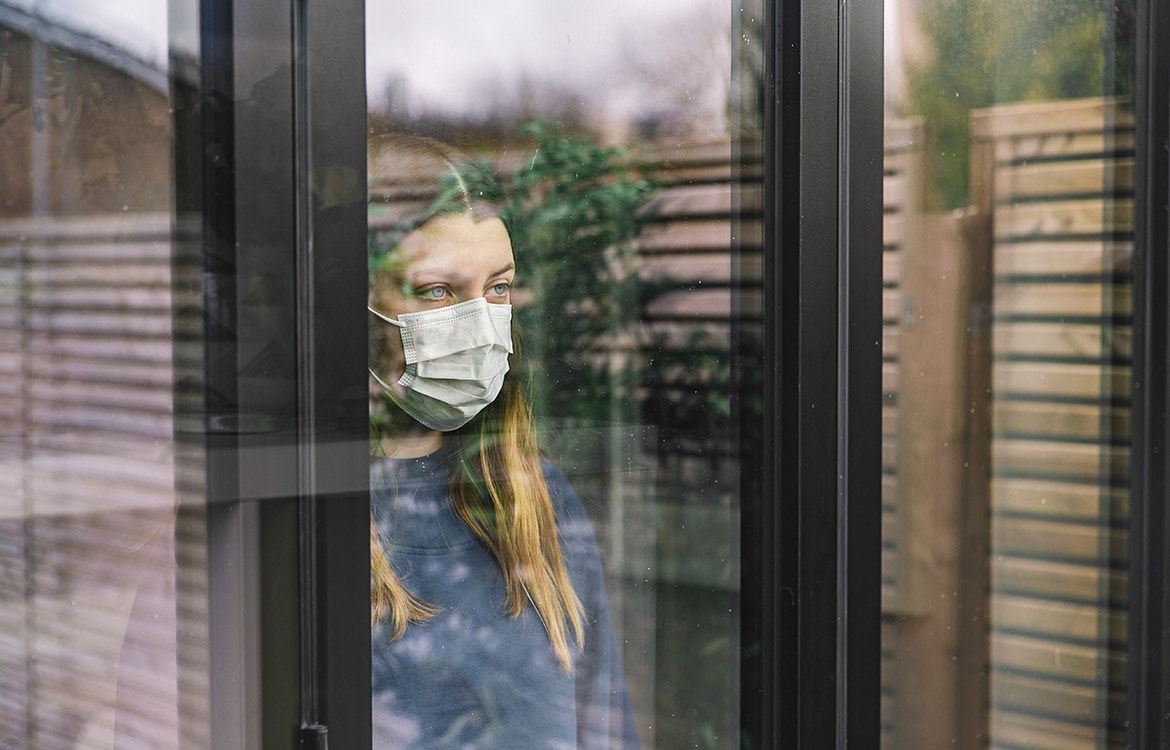
With COVID-19 currently spreading throughout the world with no sign of letting up, public health experts continue to warn the population about the risk of infection. They stress the importance of social distancing, avoiding needless outings, and only going to work if the job is deemed “essential.” While these recommendations and policies will surely reduce the risk of infection and prevent countless deaths, it is important to understand that COVID-19 also poses other risks — beyond the risk of contracting the virus. Research has begun to show that certain vulnerable populations have an increased risk of dying from suicide or drug overdose ever since COVID-19 appeared.. While part of this increased risk is due to the virus itself, the public health recommendations also create conditions that all but guarantee a rise in mental illness rates.
The term “diseases of despair” refers to a recent concept in medicine. It came about when researchers looking at working class individuals living in the Appalachian region of the United States found that people’s socioeconomic status played a major role in their susceptibility to certain conditions. In particular, those with poor educations and economic outlooks were more like to suffer from substance abuse problems, die of suicide, and overdose on alcohol or drugs. They theorized that part of what drives these life-threatening conditions is a prevailing sense of having no future — and experiencing despair.
In many ways, COVID-19 has frozen time for people. Even individuals who were relatively successful a few months ago are now unable to progress. It is hard to predict what world will emerge one year down the line, let alone in a few weeks. This sense of there being no future is thus as infectious as COVID-19 itself. COVID-19 is also itself a source of fear and despair, given its high fatality rate. Anyone with elderly family members or friends is likely afraid to lose loved ones.
According to the Well Being Trust, a resource center for mental health launched by Providence St. Joseph Health, the Great Recession of 2007-2009 was associated with a rise in suicide rates. The Well Being Trust now projects that during the COVID-19 crisis, the world will see a similar rise in suicide and drug overdose rates. In fact, they project that approximately 75,000 individuals will die from alcohol and drug-related causes unless proper action is taken. These solutions include investing in the economic health of working class individuals, improving mental health support, increasing access to unemployment, and offering accessible drug and alcohol treatment.
While during the Great Recession unemployment drove many people to suicide and overdose, during COVID-19 unemployment is not the only force driving people to despair. Most people are unable to spend time with family or loved ones. Instead, in the name of health and safety, the vast majority of the population is spending time at home alone. While some people may be working, their social connections continue to languish. The unemployed and employed alike may have no reason to keep their behavior in check without social regulation; drinking during the day, staying in bed all day with the curtains closed, and other behaviors that signify mental illness are likely to become more common.
In 12-step programs and other support groups, addiction is often spoken of as a “disease of isolation.” In fact, research backs this up: people who are more socially integrated find it easier to control their alcohol and drug use. This is partly why drug and alcohol rehabilitation programs that focus on building a social support network are so effective. At any substance abuse treatment program, whether an outpatient drug rehab or an inpatient substance abuse program, individuals work not only on building skills and tools to stay sober — they take the time to develop relationships with other sober individuals, thereby decreasing their likelihood of relapse. It is likely
Before COVID-19 despair begins to manifest and take lives, it is important that people who are suffering from mental health disorders or substance use disorder make use of available treatment services. Addiction treatment is an essential service, and the vast majority of addiction treatment services remain open even during the COVID-19 quarantine. While unemployment, loneliness, and fear may increase the chances that people will suffer from alcohol and drug addiction, perhaps the world being on pause due to COVID-19 can be looked at as an opportunity. For many, their careers, relationships, and other life priorities can be a major impediment to committing to substance abuse treatment. Few people want to abandon the hustle and bustle of their daily lives in favor of enrolling, for instance, in a partial hospitalization program. However, with COVID-19 putting most of life on hold, maybe now is the time for vulnerable individuals to focus on getting the care they need.
